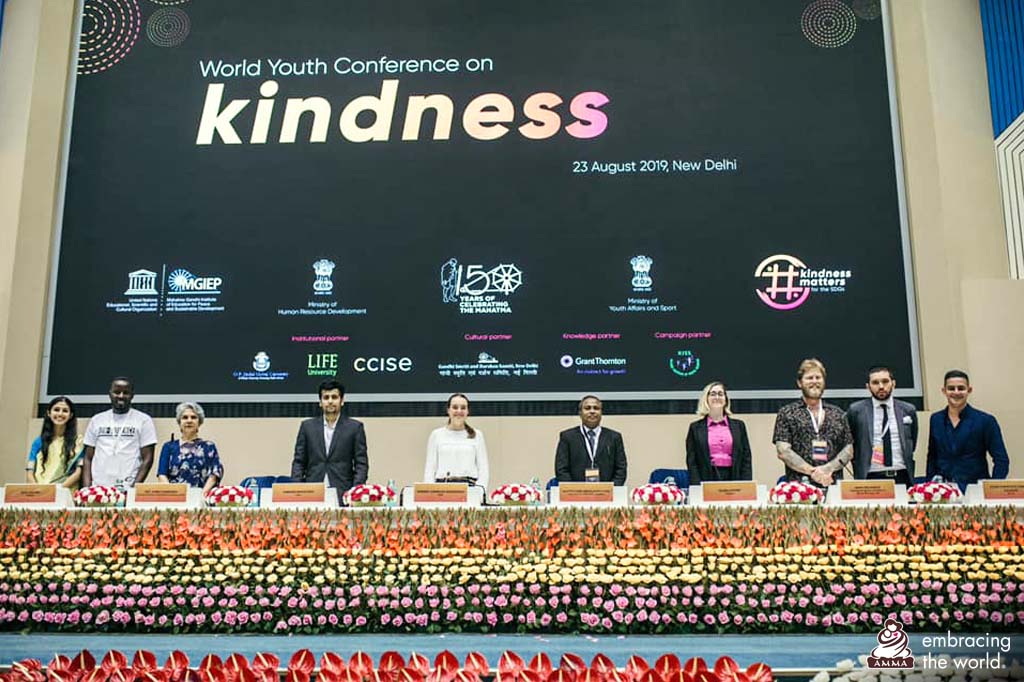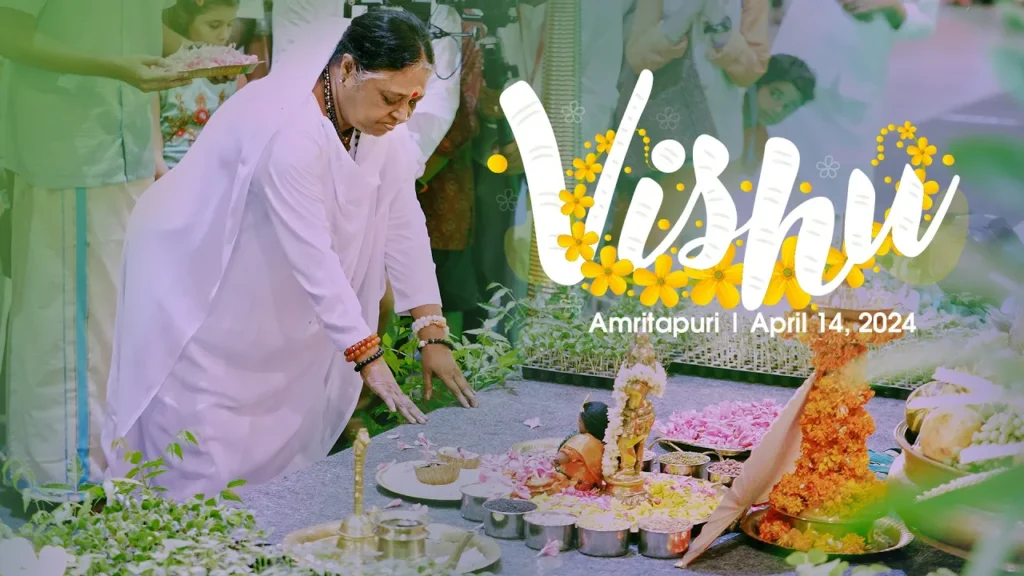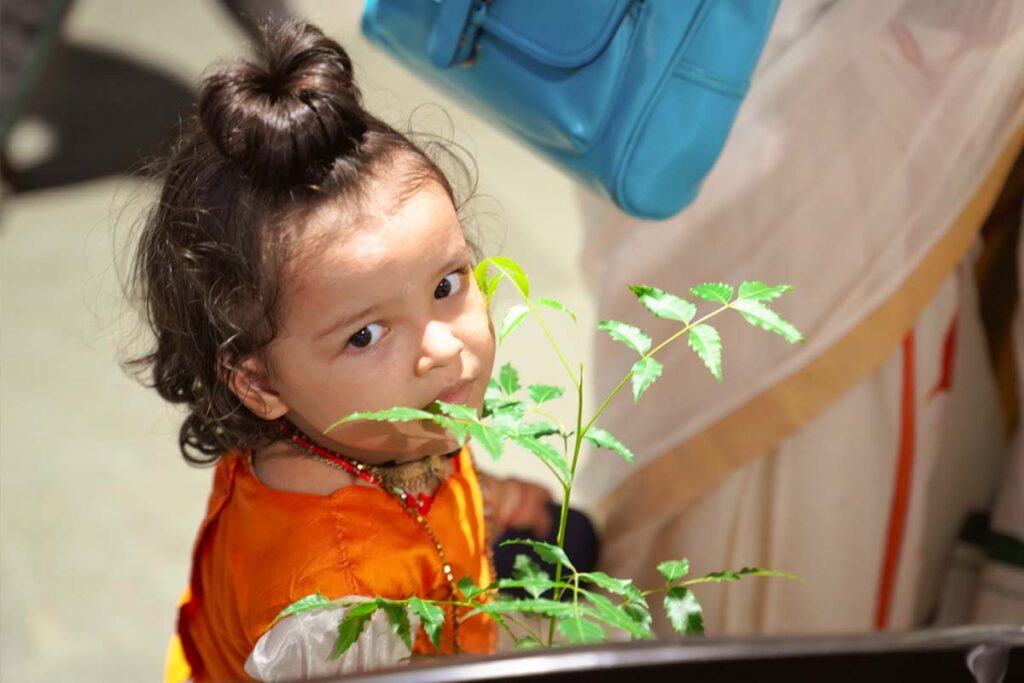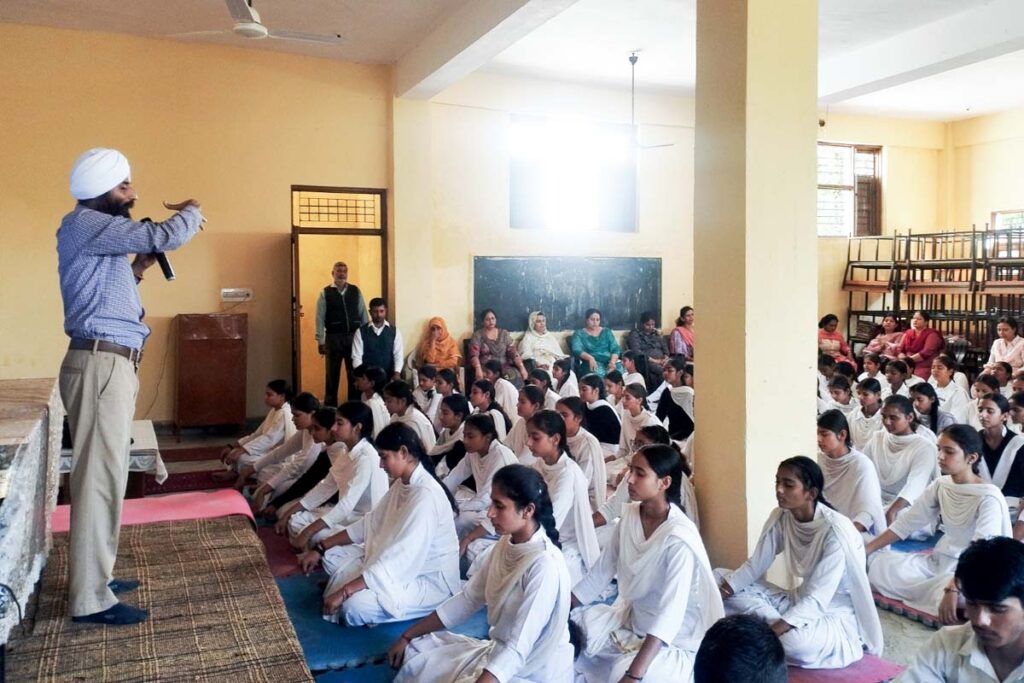by Andreas Christensen with AYUDH Europe
Three members of AYUDH Europe travelled to New Delhi for UNESCO MGIEP’s first World Youth Conference on Kindness . The goal of the gathering was to impart critical competencies such as empathy, compassion, mindfulness and critical inquiry to enable young people to transform themselves and build long-lasting peace in their communities. MGIEP is UNESCO’s Mahatma Gandhi Institute of Education for Peace and Sustainable Development.
AYUDH Europe was represented by members Andrea Goikolea (Spain), Aiknaath Jain (UK), and Sarah Keil (Germany). During the first three days, they participated in Compassionate Integrity Training and did various workshops around the topic of kindness and preventing violent extremism.

On the final day of the conference, Andrea and Aiknaath participated in two high level podium discussions. Andrea was a panelist with Talking Across Generations on Education, where the discussion focused on how best to prevent violent extremism. Aiknaath participated in the panel on Youth Agency.


The AYUDH team also presented its recent Statement on Cultural Diversity and contributed to the official UN Declaration on Kindness. The AYUDH document is being shared widely at multiple levels via local, national and international policy and decision-makers.
AYUDH Europe worked as a collective to create the statement at its 2019 Youth Summit in July, which was held at the MA Center in Hof Herrenberg, Germany. There, 300 youth discussed the role of education in diversity and inclusion. To prepare themselves in advance, they held online discussions on social media surrounding four different questions:
1. What kind of European Society do you see today, especially in regards to diversity and inclusion?
2. Why should we promote a diverse society? What are the benefits? What are the risks?
3. How can education nurture a mindset of understanding and openness and foster a society based on the values of respect and inclusion?
4. Who is responsible to promote diversity and inclusion in Europe? Is it the governments, educational institutions, media, civil society or the individual? What can youth organizations like AYUDH contribute in this respect?





On July 19th, they gathered for the official iTAGe discussion where the opening remarks were spoken by Dr. Jens Zimmermann, an MP with the German government:
“In initiatives like these you start talking about your own personal experiences from your hometown, your village, your country, and you realise a lot of similarities, but also a lot of differences. It’s great to bring these experiences together and to come home with new ideas. I hope you have a lot of new ideas and experiences and you broaden your perspective.”
Next, the participants were split into four groups to further explore the four questions. Selected youth panelists took notes during the discussions in each subgroup; Layana Bormanis, 18 from Germany, Gwenoline Bertrand, 20 from France, Pablo Banqueri Cardona, 24 from Spain, and Arjun Clare, 19 from the UK.

These youth panelists then relayed the outputs from their group during the formal discussion panel with three senior experts: Bri Dipamrita, President of Embracing the World France; Dr Joost Mönks, Executive Director of NORRAG (Network for International Policies and Cooperation in Education and Training); and Niklas Nienass, newly elected Member of the European Parliament (MEP) for Germany.
This formal discussion was moderated by Jani Toivola, former MP for Finland. Before opening the dialogue, he remarked:
“As a community we should always remember that as many as there are people in the room, there are different kinds of stories. Different ways of living, different kinds of values, different kinds of mindsets, different kinds of talents. Everybody has something to offer.”
Upon opening discussion of the four questions, Layana presented the outcome from her group where people felt that although we have created a strong and diverse community in Europe, there is still work to be done:
“Governments should focus funding efforts more on non-formal learning opportunities. Teaching soft skills and learning more than basic knowledge will promote diversity and inclusion in society.”
In agreement with this point, Niklas Nienass, MEP for Germany, appreciated that there are different styles of learning, and that the current education systems need updating and diversifying so that everyone may learn in a way which best suits them. He also spoke about the role young people have in bringing things to the attention of governments and media:
“All of you have a lot of power by just talking to people, being kind to people, and including them in discussions. It’s a hard thing to do but it will bring fruits of success in the long term.”
Next, Gwenoline presented the findings of the second group, who came to the conclusion that diversity is our natural state as human beings, and this is one of our greatest strengths. Their findings however came with a warning:
“Diversity is freedom, so we should be really careful of not forcing it. Freedom should not be forced.”
Bri Dipamrita furthered the idea that diversity is simply a fact, and concluded the lack of acceptance of diversity stems from a lack of acceptance within ourselves:
“Inside of us we are all diverse, but not unified. Outside we express insecurity and fear of diversity, because it sends us back to a diversity inside us that we don’t accept. Each time we reject somebody we can be sure there is something inside ourselves that we don’t accept.”
When speaking about the third group’s findings on the role of education in fostering openness in society, Pablo spoke about education systems sometimes being disconnected from reality. They concluded that the key to the success of education however, is down to teachers:
“Teachers have a huge responsibility towards the values that we learn. If teachers promote ethical values it can determine the whole life path of somebody. We need to think about what are the values we want set up for our European education system.”
Dr Mönks was in agreement with their verdict and commented, “If a teacher doesn’t really love teaching, how can they convey love of learning?”
He spoke about the need for schools to adapt a ‘head, heart, hands’ approach to education, using Amrita University, India as an example:
“The work Amrita University does is geared towards reaching out through education to the most vulnerable in society, to give them the basic skills to stand up. Amma’s university that she has built is an example of compassion-in-action, and of trying to make a difference with compassion. We have to bring this love and heart into education.”
The final group’s results from their dialogue on who is responsible for the promotion of diversity in Europe was presented by Arjun. According to his discussion group, although institutions and people at all levels in society have a shared responsibility, it is primarily down to the government and individuals themselves. In particular, it was thought that governments have a big responsibility to put pressure on educational institutions to instill these values in their students:
“There is a particular capacity for young people, particularly the very young, to learn and to adapt to new ways of thinking. Encouraging these values within education can be a very powerful method of promoting diversity and inclusion.”
AYUDH Europe and UNESCO MGIEP’s collaboration will continue into the future. As part of the Kindness Matters for the SDGs campaign, AYUDH Europe is implementing ten local activities in support of the self development goals across Europe in 2019. Twenty personal stories of AYUDH members will be contributed to the campaign’s digital platform.
The European Youth Summit ‘Celebrating Diversity’ was supported by the European Union, the State of Hessen and UNESCO MGIEP and was carried out in partnership with Embracing the World and the No Hate Speech Movement.
This 2019 initiative followed the success of a similar collaboration in 2017, where AYUDH Europe was the first civil society organization selected by UNESCO MGIEP to host an independently organized Talking Across Generations on Education (iTAGe) event.





